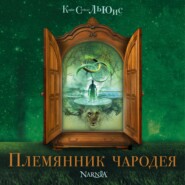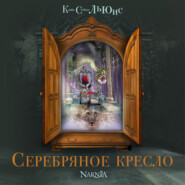По всем вопросам обращайтесь на: info@litportal.ru
(©) 2003-2025.
✖
Collected Letters Volume Three: Narnia, Cambridge and Joy 1950–1963
Настройки чтения
Размер шрифта
Высота строк
Поля
TO ROGER IANCELYN GREEN (BOD):
6/3/51
My dear Roger
(Of course, yes: I thought I had asked you to do so). You are quite right about a wood fire.
(#ulink_e4b4f8d2-9504-545c-a969-a507fa8c379c) Wood keeps on glowing red again in the places you have already extinguished—phoenix-like. Even the large webbed feet of a marsh-wiggle couldn’t do it. Yet it must be a flat hearth, I think. Does peat go out easily by treading? As an Irishman I ought to know, but don’t. I think it will have to [be] a coal fire on a flat hearth. After all, Underland might well use coal, whereas wood or charcoal wd. have to be imported.
I finished the Antigeos book.
(#ulink_9e471167-1cf4-5546-81bf-2916685fa694) There are two and only two, good ideas in it: the (supposed) ‘fog’ on the voyage and the great tidal waves on the Antigosian sea. All else is as dull as ditchwater: a flat, featureless, landscape and deadly municipal restaurants. The inhabitants are less interesting than any other-worlders I have yet met.
I enjoyed our biduum
(#ulink_b9b174b1-566b-5768-92aa-10dd351365e8) or pair-o’-days v. much. Love to both.
Yours
Jack
TO RUTH PITTER (BOD):
Magdalen College,
Oxford
17/3/51
Dear Miss Pitter
I hope you haven’t thought I was being such a brute beast as to obey your ‘Don’t write’. I was more innocently employed in having my third dose of influenza this year–or rather, now that I look at the date of your letter, it must have been my second and third, for the flash of daylight between the two tunnels was almost too short to notice.
The book is most beautiful,
(#ulink_46b27f51-2a95-549e-b4a1-ba7841ad855d) yet not with any fussy and intrusive beauty that reduces the poems to parts of a pattern. My old friends look better in their new site—for I’m no Manichean, and think the beautiful soul should have a beautiful body. But one reason why they look better is that they are better than I remembered. I find that my very favourite, The Sparrow’s Skull, had in memory preserved only its poignancy and lost a great deal of its delicacy and poetic breeding. More shame to me when it was on my shelves and memory—apparently a vulgarising memory—could have been corrected. I say, Sinking, which I hadn’t properly noticed before, is a corker. So indeed are dozens. It is a good time for re-reading: I have the precious vulnerability of the convalescent. Why do they call it ‘depression’? I like it.
The engraving is perfect except for (possibly) the Muses’ profile where I think the heavy, moustache-like shadow on the upper lip is a pity:
(#ulink_32460d24-e835-577d-a972-6c52eda6de17) but probably not so in the original. Yes. I have good reason to remember your vine and ‘to consider it’ (as in this picture) ‘is to taste it spiritually’–so Traherne says in his Centuries of Meditations,
(#ulink_7e4399b5-cd72-529d-b420-f0665e83bc36) which I expect you know and am sure, if you know, you love.
When next term cd. you come down and lunch? There’s an extra reason: you have property to reclaim. Groping in the inn’ards of an old arm chair lately (a place which rivals the sea bed for lost treasure) I fished out a spectacle case which, being opened, revealed your golden name wrapped in your silver address. So come in May or June: preferably not a Tuesday. Let me know your ideas on this.
I’m off to Northern Ireland after Easter to try my native air—half frightened at the thought. Very many thanks for the book: it has given me great pleasure already.
Yours sincerely
C. S. Lewis
TO MARY VAN DEUSEN (W):
Magdalen College
Oxford
17/3/51
Dear Mrs. Van Deusen
No. Unless it attracts you as an amusement I wouldn’t advise you to start attending ‘classes’. My idea is that unless one has to qualify oneself for a job (which you haven’t) the only sensible reason for studying anything is that one has a strong curiosity about it. And if one has, one can’t help studying it. I don’t see any point in attending lectures etc with some general notion of ‘self-improvement’–unless, as I say, one finds it fun.
I never see why we should do anything unless it is either a duty or a pleasure! Life’s short enough without filling up hours unnecessarily. And I think one usually learns more from a book than from a lecture.
With all good wishes.
Yours sincerely
C. S. Lewis
TO CHRISTIAN HARDIE (P):
(#ulink_34899491-702d-5c92-a1f9-81f31e1ce786)
Magdalen etc
22/3/51
Dear Christian
Your commands have been obeyed.
(#ulink_eee86ebe-4dd8-5f78-acc9-b95ebbfa8369) About half way through, not having yet met a single scene or character that thoroughly engaged my interest, I nearly gave up: but perseverance was rewarded, for the second half is better. One forgives Julia quite a lot for her outburst on p 255 about Charles’s ‘damned bounderish way’.
Waugh is a writer, certainly. Many descriptions, phrases, and long-tailed similes pleased me: but not the novel, as a novel. If one’s going to tell the story through one of the characters then, surely, either that character ought to be a fairly sane and straightforward one (as in Erewhon
(#ulink_bfa5b34e-24b6-552a-989a-5388e2686ab5) or Rob Roy),
(#ulink_0fa9fbde-62ae-5ab3-bcf1-182558de10eb) or else, if he’s a monstrosity, then the other characters ought to be normal (as in Hogg’s Justified Sinner
(#ulink_0ae29fab-72d6-5147-8a33-dc1b3060e724) or McKenna’s Well Meaning Woman).
(#ulink_91d400b8-a9ef-53b3-b24b-3f483de3524c)
As Chesterton said, you can have a story about a knight among dragons, but not about a dragon among dragons.
(#ulink_67a89c55-f481-5580-ac57-b9716992052a) Or, to come nearer, I can manage humans seen in a distorting mirror or goblins seen in an ordinary mirror: but goblins in a distorting mirror is too much. In spite of clear distinctions, the narrator is so very much ‘the same kind of thing’ as Blanche & Sebastian and his own father & Ld. M, and all the others—the tiresome seen through the eyes of the tiresome. And Sebastian would be a terrible bore on any terms. The narrator’s spontaneous dislike [of] all nice people (e.g. old Lady M. or Ld. Brideshead) has, I suppose, a theological significance?

















